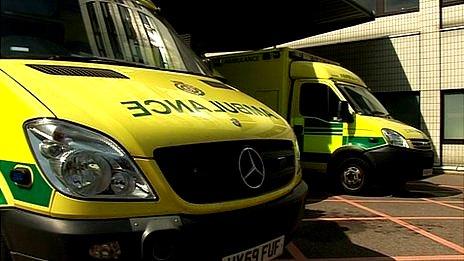East of England Ambulance downgraded 999 call priorities
- Published
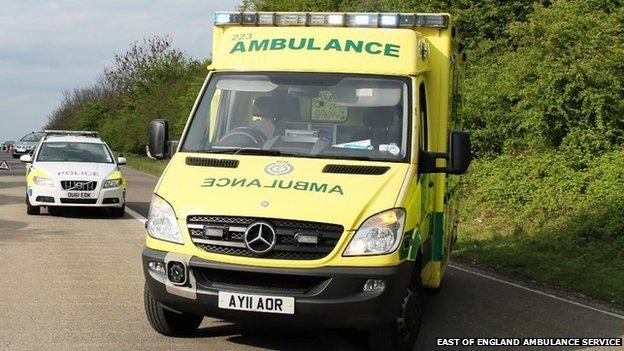
The ambulance service covers Bedfordshire, Cambridgeshire, Essex, Hertfordshire, Norfolk and Suffolk
Thousands of people with potentially life-threatening conditions who needed an ambulance had a longer wait after 999 calls were downgraded, the East of England Ambulance Trust has said.
It admitted 8,324 patients were affected by rule changes between 18 December 2013 and 22 February 2014.
Managers at emergency call centres decided to alter Department of Health priority rules without consultation.
A "serious incident report" has claimed no patient was seriously harmed.
The trust has not said if any staff were disciplined but did say "a small number involved have been subject to investigation and informed of correct procedures".
The trust, which in August was fined £1.2m over missed targets, appointed chief executive Anthony Marsh from the West Midlands service to reorganise the service last January.
Changes to the 28 priority rules were identified on 19 February 2014 at a staff meeting with Dr Marsh.
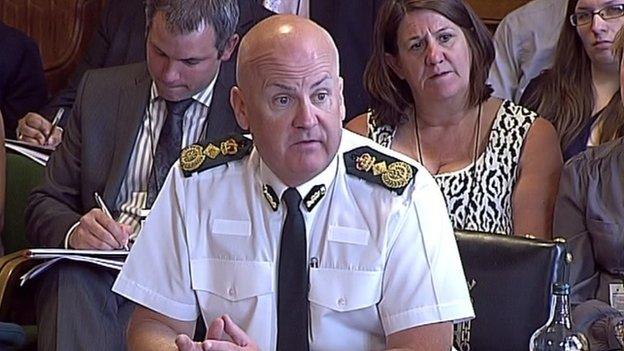
Anthony Marsh took on the role of chief executive of East of England Ambulance Service in January 2014
Emergency Operations Centre staff raised concerns about "potentially inappropriate and unsafe responses" after 21 priority rules were downgraded.
An investigation revealed the decision to alter priorities had not been taken through a "governance group" and was a "serious incident".
Priorities were restored pending a full investigation, the report said.
A review of the downgrade and a survey of patients affected failed to reveal any harm.
"The harm analysis suggests that, whilst governance procedures were not followed for the alterations to code sets (priorities), the rationale behind the changes was likely to be correct," the report concluded.
The investigating officer has recommended that any future changes to priorities must be researched with patients in mind and must be signed off at Executive Management Board level.
- Published29 August 2014
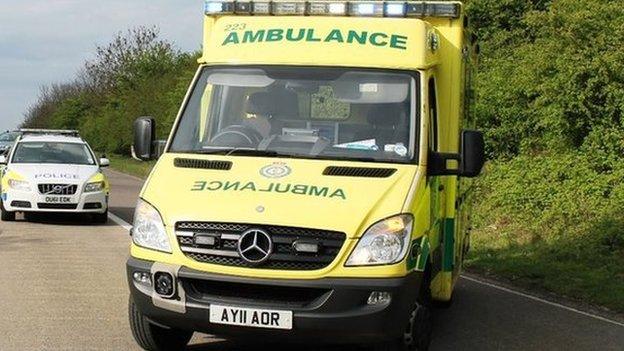
- Published28 August 2014
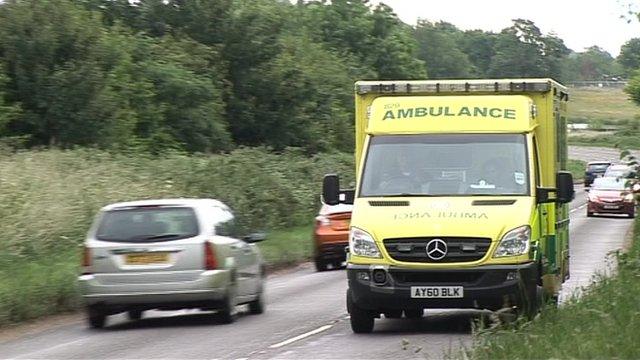
- Published29 January 2014

- Published30 December 2013
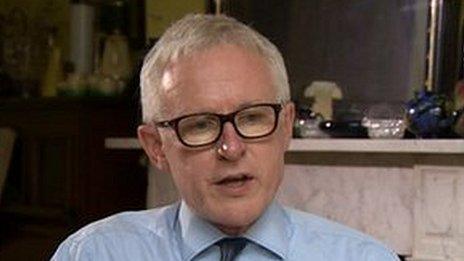
- Published26 June 2013
